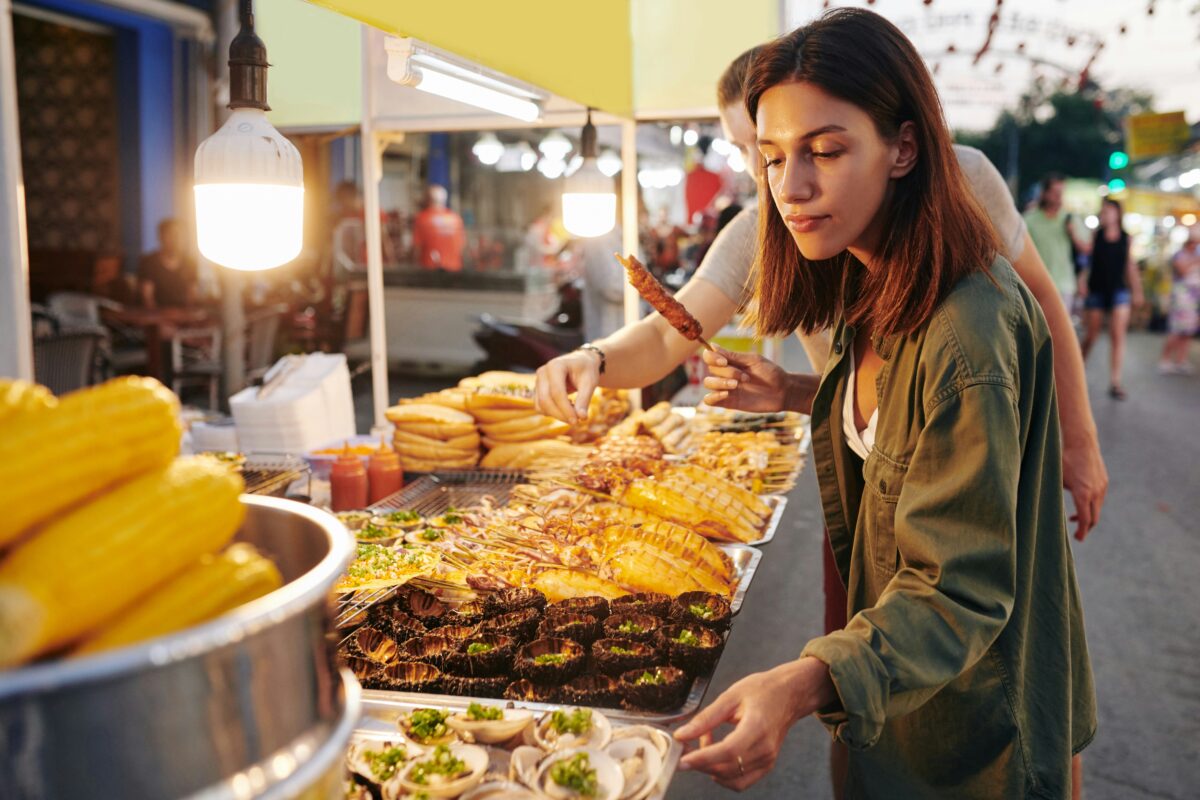When we go traveling, good food is at the top of the list of things we look forward to. Whether it’s sampling fresh sushi in Japan or indulging in freshly prepared pasta in Italy, the local cuisine is a window into the culture of a region. But eating well on the road doesn’t have to cost an arm and a leg. With a little planning and insider knowledge, you can enjoy fantastic meals without sacrificing quality or paying too much.
In this article, we’ll show budget travelers, foodies, and travel bloggers how to save on food without sacrificing fresh sandwiches or skipping local specialties.
Master the art of research
Know before you go
The key to saving money on a trip is sound research. While en route to your destination, take a few minutes to find out where the locals go out to eat, what a meal costs, and what areas provide wonderful meals for decent prices. Sites like Eater will often include restaurant guides for popular cities, while websites like Tripadvisor may offer suggestions from travelers themselves. Think of saving certain forums or blogs specific to locals that point out out-of-the-way spots.
For example, if you’re heading to Bangkok, discover what streets have the best pad Thai stalls. If you’re heading to Paris, discover what boulangeries people rave about for flaky croissants.
Use food apps
Apps are a lifesaver when it comes to cutting costs on eating out. HappyCow is ideal to discover cheap vegetarian or vegan restaurants, and Too Good To Go lets you pick up leftover meals from high-quality restaurants at reduced prices.
Arrange phone folders on your note app by addresses or location screenshots you’d like to remember. When the hunger bug bites, you’ll be prepared.
Utilize local markets
Shop fresh, eat like a local
One of the smartest and tastiest things you can do to save pennies is dine at local markets. Fresh vegetables and fruits, neighborhood specialties, and even pre-cooked meals can generally be had for a fraction of the price you’d pay at a restaurant.
Imagine strolling through a Barcelona market and grabbing jamón ibérico, manchego cheese, and a crusty baguette: your ideal picnic, all for under $10. And market trips expose you to the local culture and cuisine.
Pro Tip: Bring reusable utensils and containers so that you don’t have to use single-use plastic. They’re portable and keep a low environmental impact.
Cook when you can
If you’re staying in an Airbnb or hostel with a shared kitchen, utilize this amenity. Cooking one or two meals per day can cut down on your expenses to spend on that specialty meal you’ve heard so much about from a local restaurant. You may cook yourself a simple breakfast of eggs and toast purchased at the market and then indulge in dinner at that popular restaurant.
Cooking doesn’t have to be dull. Many local markets sell easy-to-cook ingredients or semi-prepared meals perfect for travelers. For inspiration, check out recipes or grocery hauls on YouTube for the specific region you’re visiting.
Follow the locals
Avoid tourist traps
Steer clear of restaurants with multilingual menus in tourist areas. While convenient, the food is typically overpriced and disappointing. Instead, venture off the beaten path and look for restaurants that are packed with locals.
One guaranteed tip? Look around at lunchtime. Busy restaurants will have lines of locals waiting. A sure sign that the food is both great and affordably priced.
Lunch specials and set menus
Even higher-end restaurants that are open evenings have fixed or lunch menus available that are markedly cheaper than the à la carte dinners in the evening. Say, for instance, high-quality restaurants in capitals like Tokyo or Buenos Aires offer exquisite prix fixe lunches during the day at half the price of their dinner entrees.
Be on the lookout for “menu of the day” specials. Fixed-price meals usually include an appetizer, main course, and dessert or drink and offer great value while giving you a complete idea of the local cuisine.
Get creative with snacks
Keep snacks handy
Travel days tend to stretch your food budget to the breaking point, especially at airports or on lengthy train journeys where costs are outrageous. Bringing travel-convenient snacks such as nuts, granola, or dried fruit can satisfy hunger without costing an arm and a leg.
Scavenging for snacks can also be enjoyable, depending on your destination. Consider $2 samosas from a street vendor in India or $5 panini from a bakery in Florence.
Share to save
Traveling solo can make eating out challenging since portions are often too large or pricey for one person. If you’re traveling with friends, order family-style and sample a variety of dishes while splitting the cost.
Alternatively, some apps and social communities (like EatWith) connect solo travelers interested in sharing meals or trying local food experiences together.
Stay in the know with local deals
Check out happy hours and buffets
Restaurants and cafes around town lure clients inside during quiet hours with happy hour specials. Max out on those reduced prices on appetizers and cheaper drinks.
Similarly, establishments also offer dinner or lunch buffets at economical rates. At places in Southeast Asia, to illustrate, the all-you-can-eat barbecue or hot pot can be accessed from as little as $8 a person.
Make use of discount sites
Some websites and mobile apps, like Groupon or LocalFlavor, feature promotions and special deals for dining in particular cities. Look for them before eating out, you could find hidden restaurants at half price.
Tips for ethical and sustainable travel
Saving is important, but don’t forget to support local businesses whenever possible. Avoid giant chains in favor of mom-and-pop restaurants and stand-alone coffee shops. These ones rely on tourist money more than global brands.
Be mindful of wastage as well. Get into the habit of ordering something you can manage to finish off or asking for left-overs if it is culturally acceptable.
Eat well for less – no matter where you wander
Budget travel also does not imply cutting corners on fine food. You can indulge in the best of local food without going overboard if you are willing to put in some research, think creatively, and be open-minded. From strolling through vibrant markets to dining where locals dine, these tips not only cost less but also make your travels that much more rewarding.

